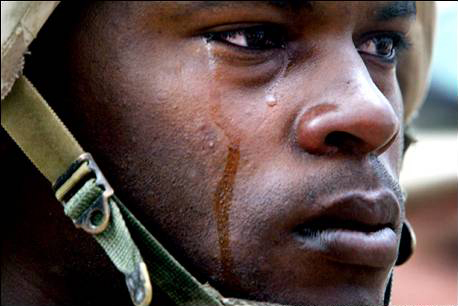
By now, many of you have probably heard of PTSD (Post Traumatic Stress Disorder). Recently, it was featured in TIME magazine and has gotten much national news coverage. But, you are probably still asking yourself what is PTSD? And why is it getting so much coverage?
PTSD is a disorder that can come from exposure to a terrifying ordeal in which there was potential for extreme physical harm or in which there was actual physical harm (Source). Some events that could trigger PTSD would be personal violent assaults, natural/human caused disasters, accidents, or military combat. People who have PTSD have persistent frightening thoughts and/or memories from their ordeal; they may also experience sleep problems, feel detached or numb, or be easily startled.
Although PTSD can be caused by many occurrences, one major one that is currently affecting thousands of veterans is PTSD related to war. These veterans coming home from their deployment elsewhere are not only finding it hard to adjust back to normal life, but also to escape from their state of mental health. Since PTSD is a mental condition, it never completely vanishes. It is classified as an anxiety disorder, and many cannot get over it without help.
Imagine having a loved one come home (at last) after months of employment. At first, they are smiling and happy to see you, and it takes them a while to settle back into normal life; but they do eventually. They get a job, or go back to school to earn a degree, but after awhile they start to act a little strange. They can’t go to sleep or wake up at night with nightmares, sometimes they even start rolling around and trying to fight something in their dreams. Sometimes, they zone out when talking with somebody and won’t respond until you have to start shaking them. All of a sudden, the bubbly bright personality of your loved one is gone and it’s almost as if a more angry, sometimes distant person has taken their place. They become angry or violent at the smallest things, and can’t sleep at night. The one day you come home and it’s all over. They are gone forever, and shaking with sobs you fall to the floor holding the piece of paper that states their last words. A feeble attempt to explain why they can’t handle it anymore; the demons in their head bringing them nightmares and the inability to get rid of them. There was no escape for them, and now they’ve gone.
Many a veteran and their family are going through this same process. In 2005, the suicide rate among male Veteran VA users was 37.19 per 100,000, compared to 13.59 in females. Now though, the rate has changed. According to TIME magazine, one soldier a day commits suicide. That’s nearly 400 soldiers a year.
With so many coming home this season, I feel that everyone should know a little something about veterans and PTSD. The men and women who do so much for us sometimes need help of their own.
This holiday season, reach out to a military veteran and share a moment of compassion and thanks with them.



